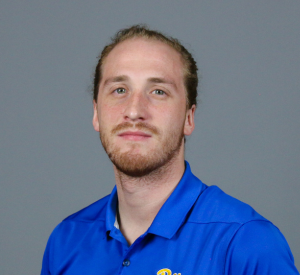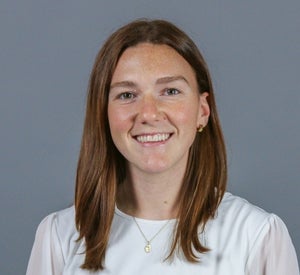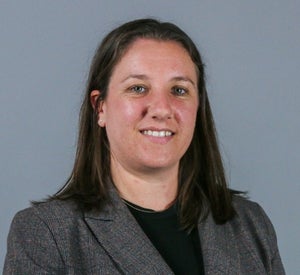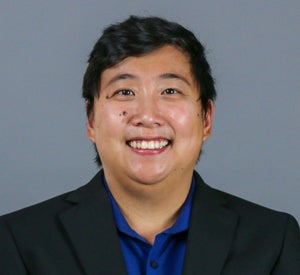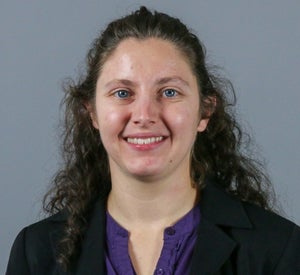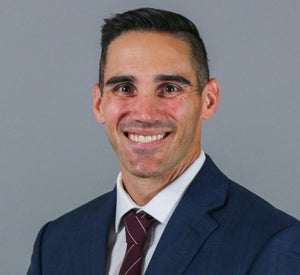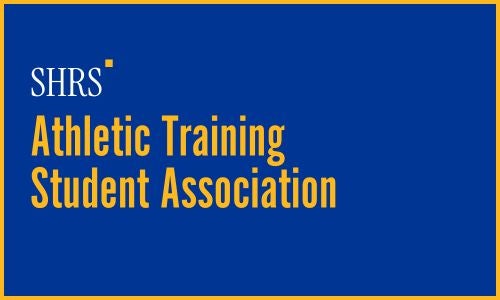Overview
In Pitt’s Department of Sports Medicine and Nutrition, there’s a vision for the future. It’s a place where scientists, using contemporary, state-of-the-art practices have the potential to extend the careers of elite athletes and weekend warriors, where human performance optimization translates to injury prevention and military operational success, where exercise and diet help to prevent and manage disease and nutrition information impacts the well-being of the community and informs public policy.
It’s a place where innovative and multidisciplinary research makes an immediate connection to real-world practices. Proof lies in the Department’s growing number of regional, national and international partners as well as the quantity and quality of funding from prestigious organizations such as the National Institutes of Health, U.S. Department of Defense, NASA and others.
Through the use of technology and collaborative science, the Department of Sports Medicine and Nutrition is improving the quality of life and resiliency of people from all walks of life and abilities today, and championing health and wellness for life.
Programs
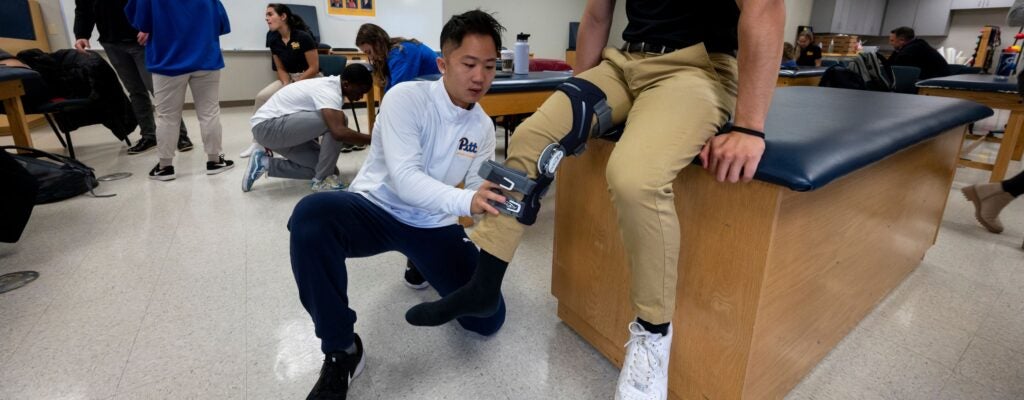
On-campus
Duration:
Accelerated MS
3 years
(6 terms)
MS
2 years
(5 terms, including 1 summer term)
Program Start:
Accelerated MS
Fall term (August)
MS
Summer term (May)
Application Closes: Accelerated MS March 1, 2026 MS May 1, 2026

On-campus
Duration:
Accelerated MS Entry Point and Post-Baccalaureate Entry Points
3 years (6 terms)
Didactic Program in Dietetics (DPD) Graduate
2 years (4 terms)
Program Start:
Fall term (August)
Application Closes: Accelerated MS March 1, 2026 Post-Baccalaureate March 1, 2026 Didactic Program in Dietetics (DPD) Graduate February 1, 2026

On-campus
Duration:
2 years
(4 terms)
Program Start:
Fall term (August)
Application Closes: March 1, 2026

On-campus
Duration:
4-5 years
Program Start:
Fall term (August)
Application Closes: May 1, 2026
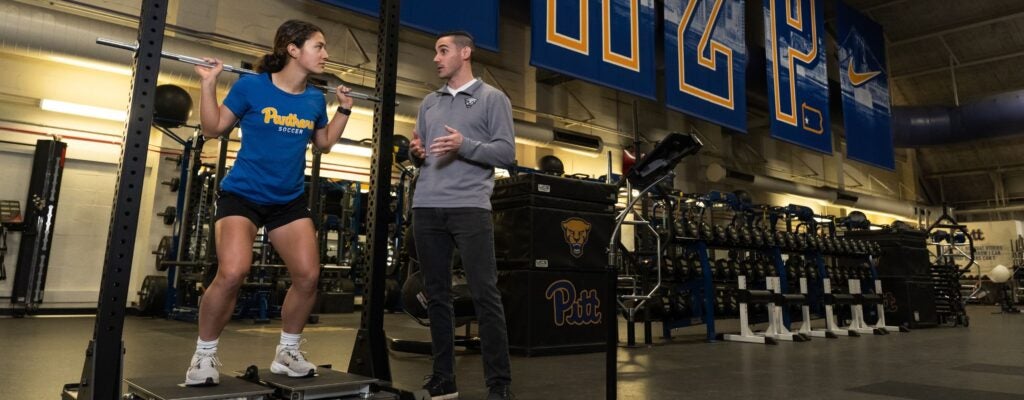
On-campus
Duration:
Full time: 1 year
(3 terms, including 1 summer term)
Part-time: 1-3 years
Program Start:
Fall term (August)
Application Closes: July 15, 2026
Scholarships
Research
Research Areas
- Knowledge discovery and predictive analytics in Sports Medicine and inflammation-related diseases
- Nutrition, Sports Nutrition
- Resistance Exercise Physiology; Programming; Aging; Biochemistry and Endocrinology
- Human Performance Optimization, Sports Science
- Military physiology
- Injury prevention
- Neuroendocrine physiology, neurophysiology, neuroimaging, brain stimulation
The Neuromuscular Research Laboratory/Warrior Human Performance Research Center (NMRL)
The NMRL is the applied research facility of the Department of Sports Medicine and Nutrition. The NMRL is staffed by multidisciplinary research faculty and graduate students including athletic trainers, physical therapists, exercise physiologists, bioengineers, biomechanists, registered dietitians, medical doctors and epidemiologists. Our scientists and clinicians focus on optimizing human performance and mitigating musculoskeletal injuries to improve both the quality of life and resiliency in athletic, military and active populations. We assess individuals through sports-simulated environments to determine specific variables including investigating the influence of weight distribution, muscle function, balance, flexibility, proprioception, gender, aging and fatigue, as well as the effects of injury, surgery and rehabilitation on joint stability. Deficiencies in body mechanics and muscle function are used to develop programs to improve performance and minimize potential for injury.
The NMRL serves as the preferred laboratory for all of the performance testing needs of the Pittsburgh Steelers, Pittsburgh Penguins and Pitt Athletics.
Performance testing serves to:
- reduce the number and severity of athletic injuries
- maximize performance and readiness for sport
- enhance and enable the athlete’s capabilities
- maximize the efforts of their sports participation on their short- term and long-term quality of life
We have also applied this extensive sports injury prevention and performance enhancement model to the Department of Defense (DoD) and its tactical athletes in the U.S. military through our Warrior Human Performance Research Center.
Based on the findings that unintentional injuries pose the greatest incidence of morbidity in the US military, the Warrior Human Performance Research Center (WHPRC) was created to study our military elite and the unique injury mitigation and performance optimization needs of these select tactical athletes. Our experts study physiological demands and associated injuries and establish mission-specific human performance protocols to reduce the incidence and severity of injuries, maximize human capital and combat readiness, and enhance the tactical life cycle and quality of life outlook after service.
The WHPRC in Pittsburgh provides administrative and technical oversight of DoD research. Technical responsibilities include data processing and management; database entry of laboratory, injury, and nutrition data; analysis of food records; development of testing protocols; piloting of new testing protocols, and collection of athletic model data. The WHPRC established seven remote laboratories at military and Special Forces bases across the country, including a remote laboratory in Fort Bragg, NC – the largest military base in the world.
Another central focus of the department’s research is related to the role of exercise and nutrition strategies to enhance wellness while preventing and managing disease.
One specific focus area is behavioral intervention for the prevention and treatment of overweight and obesity—more specifically, investigating what individuals can do behaviorally to effect motivation to be physically active and consume a healthy diet, and to this end, relying on the most powerful technologies available for self-motivation and the measurement of one’s own performance.
People

Kevin Conley
Associate Dean for Undergraduate Studies, Chair for the Department and Professor
kconley@pitt.edu
Trisha Cousins
Director of the Dietitian Nutritionist Program, Assistant Professor
tcousins@pitt.edu
Brian Martin
Associate Director of the Neuromuscular Research Laboratory (NMRL), Research Assistant Professor
bjm135@pitt.edu
Mary Murray
Interim Director of Clinical Education for the Athletic Training Program, Associate Professor
mmurray1@pitt.eduResources
Current Student Resource Hub
Students can find access to program materials in the Current Student Resource Hub. Pitt Passport is required.
Current Students can also find answers to commonly asked questions and connect with valuable resources and contacts. This resource helps students locate academic guidance, professional development, or support for each individual’s wellbeing including things like counseling or study resources.



